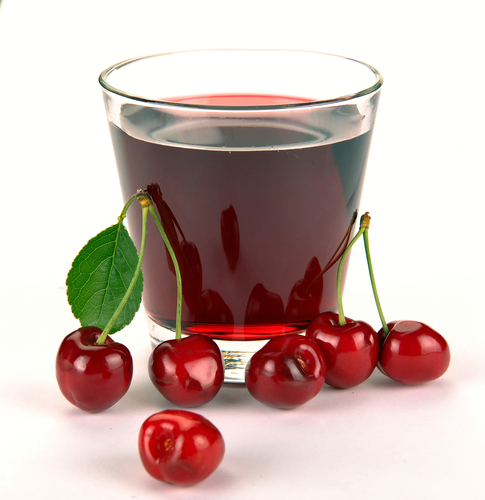MRes In vitro investigation of anti-inflammatory properties of Montmorency Tart Cherry Juice Extract derived extracellular vesicles
Supervisors: Dr Charlotte Lawson, Dr Matthew Gage and Dr Lindsay Bottoms
Department: Comparative Biomedical Science
Project Details

Extracellular vesicles (EV) are plasma membrane-enclosed cargo-laden vesicles released from the surface of every cell type so far examined, including plasma, urine, sweat and recently EV have also been identified in plants. They have a cargo that can include protein and genetic material, particularly miRNA, and have been hypothesised as key players in intercellular communication.
Montmorency tart cherry juice (MTCJ) is a commercially available dietary supplement that provides high levels of anthocyanins. Regular supplementation has been shown to have beneficial effects in healthy participants and improve exercise parameters in patients with metabolic syndrome. However, as with many dietary supplements the bioavailability of the beneficial anthocyanins is low. Our hypothesis for the proposed study is that MTCJ-EV and in particular a miRNA cargo, is responsible for at least some of the beneficial qualities of regular intake.
The aim of this study is to isolate EV from commercially available MTCJ extract and examine their uptake by human vascular endothelial cells and monocytes, furthermore, to determine how they modulate oxidative stress and inflammation after treatment of these cells with high glucose, saturated fatty acid such as palmitic acid, or inflammatory mediators such as LPS.
The project will involve isolation of EV, cell culture, flow cytometry, nanotracker analysis, western blotting, qPCR, ELISA. For some experiments EV will be fluorescently labelled to enable uptake to be measured.
The data provided from this study will be suitable for presentation at a local or national scientific meeting and will provide data to inform a larger grant application.
References
-
Desai T, Roberts M, Bottoms L. Effects of short-term continuous Montmorency tart cherry juice supplementation in participants with metabolic syndrome. Eur J Nutr. 2021 Apr;60(3):1587-1603. doi:10.1007/s00394-020-02355-5.
-
Lawson C, Vicencio JM, Yellon DM, Davidson SM. Microvesicles and exosomes: new players in metabolic and cardiovascular disease. J Endocrinol. 2016 Feb;228(2):R57-71. doi: 10.1530/JOE-15-020
-
Heinrich LF, Andersen DK, Cleasby ME, Lawson C. Long-term high fat feeding of rats results in increased numbers of circulating microvesicles with pro-inflammatory effects on endothelial cells. Br J Nutr. 2015 Jun 14;113(11):1704-11. doi: 10.1017/S0007114515001117.
-
Urzì O, Gasparro R, Ganji NR, Alessandro R, Raimondo S. Plant-RNA in Extracellular Vesicles: The Secret of Cross-Kingdom Communication. Membranes (Basel). 2022 Mar 23;12(4):352. doi:10.3390/membranes12040352
Requirements
Essential:
- Must meet our standard MRes entry requirements.
Desirable:
-
An interest in nutrition science
This can be taken as a full-time or part-time (12months FTE) project commencing in October 2023, based at RVC's Camden campus.
Funding
Self-funded: The MRes student will be expected to meet project costs (£2000), course fees and their living expenses.
International applicants are welcome to apply but must be able to fund the difference between "Home" and "Overseas" tuition fees.
You can find information on fees and funding online. A postgraduate master's loan may be available to help cover costs.
How to Apply
For more information on the application process and English Language requirements see How to Apply.
Deadline: 30th July 2023
We welcome informal enquiries - these should be directed to Dr Charlotte Lawson chlawson@rvc.ac.uk
Interview date and location: TBC (August 2023)
